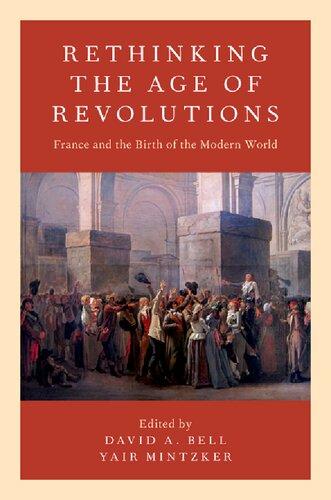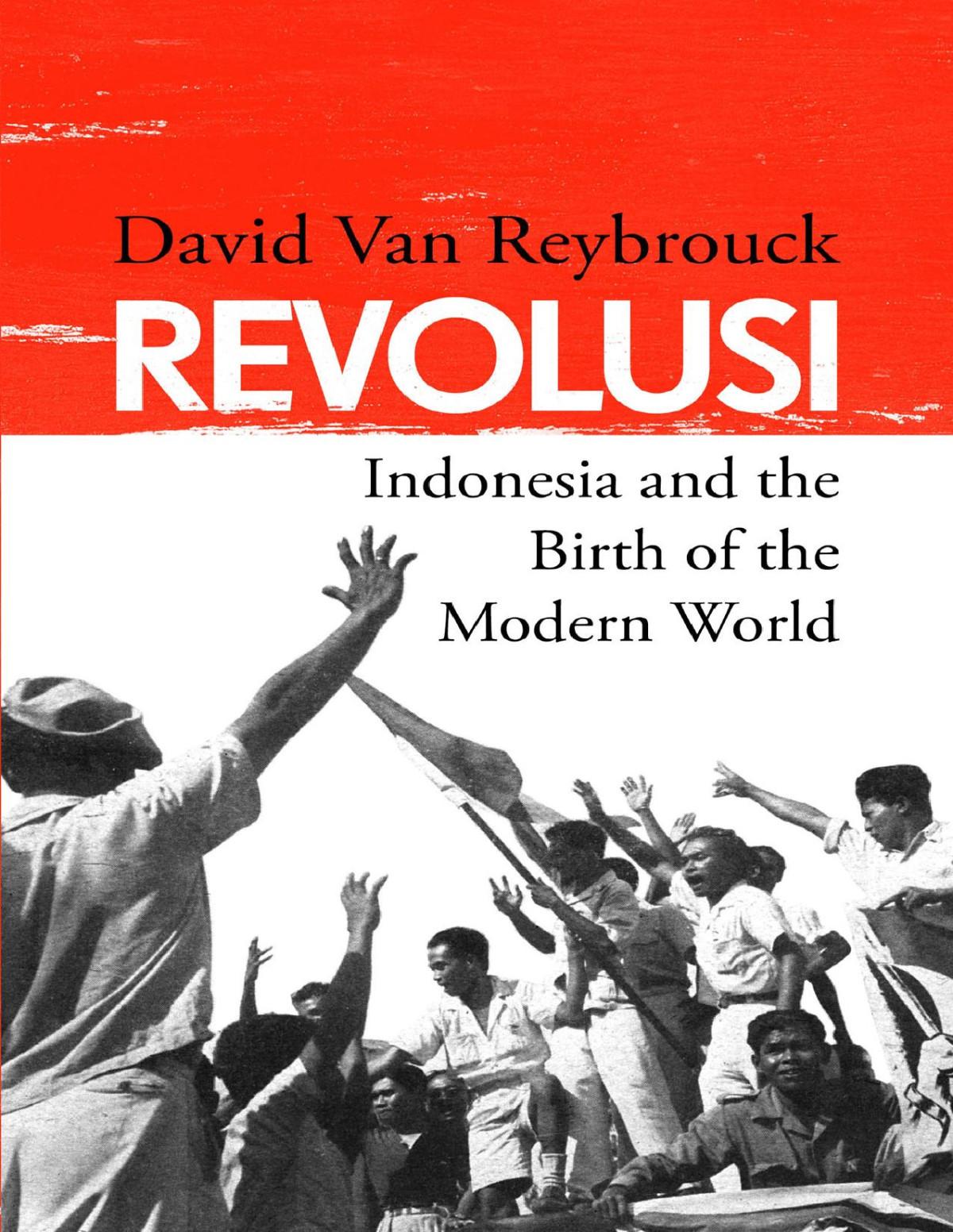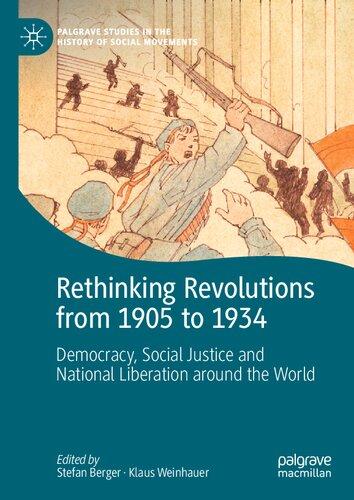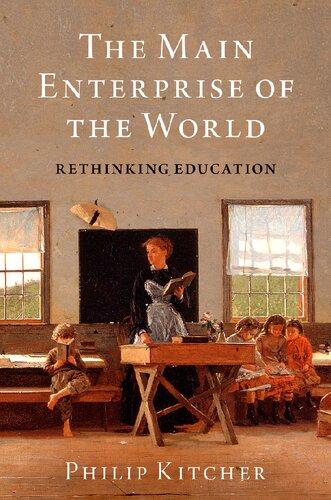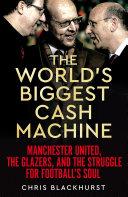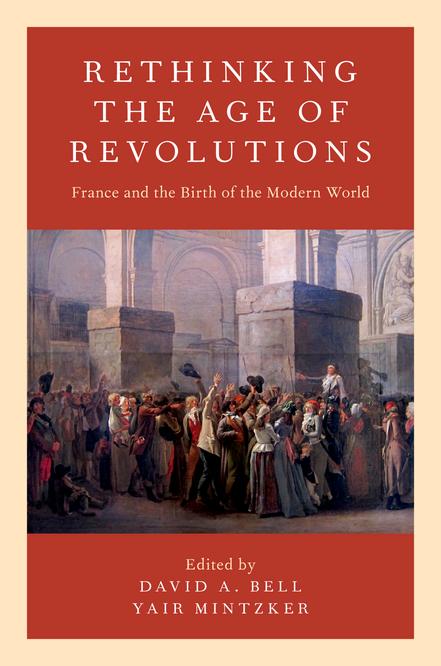1
Oxford University Press is a department of the University of Oxford. It furthers the University’s objective of excellence in research, scholarship, and education by publishing worldwide. Oxford is a registered trade mark of Oxford University Press in the UK and certain other countries.
Published in the United States of America by Oxford University Press 198 Madison Avenue, New York, NY 10016, United States of America.
© Oxford University Press 2018
All rights reserved. No part of this publication may be reproduced, stored in a retrieval system, or transmitted, in any form or by any means, without the prior permission in writing of Oxford University Press, or as expressly permitted by law, by license, or under terms agreed with the appropriate reproduction rights organization. Inquiries concerning reproduction outside the scope of the above should be sent to the Rights Department, Oxford University Press, at the address above.
You must not circulate this work in any other form and you must impose this same condition on any acquirer.
Library of Congress Cataloging-in-Publication Data
Names: Bell, David A. (David Avrom), editor. | Mintzker, Yair, editor.
Title: Rethinking the Age of Revolutions : France and the Birth of the Modern World / edited by David A. Bell and Yair Mintzker.
Description: New York : Oxford University Press, 2018.
Identifiers: LCCN 2018001376 | ISBN 9780190674809 (pbk. : alk. paper) | ISBN 9780190674793 (hardcover : alk. paper)
Subjects: LCSH: France—Politics and government—1799–1815. | France—History—Revolution, 1789–1799—Influence. | France—History—Consulate and First Empire, 1799–1815—Influence. | Europe—Politics and government—1789–1815. | Revolutions—History—18th century. | Revolutions—History—19th century. | History, Modern—18th century. | History, Modern—19th century.
Classification: LCC DC155 .R47 2018 | DDC 944.04—dc23
LC record available at https://lccn.loc.gov/2018001376
9 8 7 6 5 4 3 2 1
Paperback printed by WebCom, Inc., Canada
Hardback printed by Bridgeport National Bindery, Inc., United States of America
To Robert Darnton and Keith Michael Baker
CONTENTS
List of Contributors ix
Introduction xiii
David A. Bell and Yair Mintzker
1. Nature or Nation? Rights Conflicts in the Age of the French Revolution 1
Dan Edelstein
2. Every Island Is Not Haiti: The French Revolution in the Windward Islands 41 Paul Friedland
3. The Politics of Popularity: Celebrity Culture and the French Revolution 80
Antoine Lilti
4. Charismatic Authority in Revolutionary and Napoleonic France 104
David A. Bell
5. The Fate of Nations Is the Work of Genius: The French Revolution and the Great Man Theory of History 134
Darrin M. McMahon
6. “New History”: The Radical Pasts of the French Revolution, 1789–1794 154
Joseph Zizek
7. The Thermidorians’ Terror: Atrocities, Tragedies, Trauma 193 Howard G. Brown
8. Of Revolutions and the Problem of Choice 236 Sophia Rosenfeld
Index 273
CONTRIBUTORS
David A. Bell (co-editor and contributor) is the Sidney and Ruth Lapidus Professor in the Age of North Atlantic Revolutions at Princeton University. A winner of Guggenheim, ACLS, and NEH fellowships, he is the author of six books, including The Cult of the Nation in France: Inventing Nationalism, 1680–1800 (2001); The First Total War: Napoleon’s Europe and the Birth of Warfare As We Know It (2007); and the essay collection Shadows of Revolution: Reflections on France, Past and Present (2016). His books have been translated into French, Spanish, Portuguese, and Chinese. His Charisma and Power in the Age of Revolutions, is forthcoming with Farrar, Straus, Giroux.
Howard G. Brown is Professor of History at Binghamton University, State University of New York. He is the author of War, Revolution and the Bureaucratic State: Politics and Army Administration in France, 1791–1799 (1995) and the prize-winning Ending the French Revolution: Justice, and Repression from the Terror to Napoleon (2006), as well as the editor, with Judith A. Miller, of Taking Liberties: Problems of a New Order from the French Revolution to Napoleon (2002). His latest book is Mass Violence and the Self: From the French Wars of Religion to the Paris Commune (2018).
Dan Edelstein is the William H. Bosnall Professor of French and Chair of the Division of Literatures, Cultures, and Languages at Stanford University. He is the author of the prize-winning The Terror of Natural Right (2009) and of The Enlightenment: A Genealogy (2010), as well as the editor of The
Super-Enlightenment (2010) and, with Keith Michael Baker, of Scripting Revolution (2015). His latest book, On the Spirit of Rights, is forthcoming in fall 2018.
Paul Friedland is Professor of History at Cornell University. A recipient of NEH, ACLS, Princeton Davis Center and, most recently, Guggenheim fellowships, he is the author of the prize-winning Political Actors: Representative Bodies and Theatricality in the Age of the French Revolution (2002), and of Seeing Justice Done: The Age of Spectacular Capital Punishment in France (2012). In addition to his project on the French Revolution in the Caribbean, he is also currently working on a history of animal rights in France.
Antoine Lilti is Directeur d’Études at the École des Hautes Études en Sciences Sociales in Paris. A former editor of the journal Annales, he is the author of Le Monde des salons: Sociabilité et mondanité à Paris au XVIIIe siècle (2005, translated into English as The World of the Salons, 2015), and of Figures publiques: L’ invention de la célébrité (1750–1850) (2014, and translated into English as The Invention of Celebrity, 2017), as well as editor, with Céline Spector, of Commerce, civilization, empire: Penser l’Europe au XVIIIe siècle (2014).
Darrin M. McMahon is the Mary Brinsmead Wheelock Professor of History at Dartmouth College. He is the author or editor of eight books, including Happiness: A History (2006), which has been translated into ten languages and was named a Notable Book of the Year by The New York Times, and Divine Fury: A History of Genius (2013). A recipient of Alexander von Humboldt and Guggenheim fellowships, he is currently writing a history of ideas of equality and a study of lighting and illumination in the Age of Enlightenment.
Yair Mintzker (co-editor) is Professor of History at Princeton University. A recipient of fellowships from the Wissenschaftskolleg zu Berlin and the Institute for Advanced Study, he is the author of the prize-winning The Defortification of the German City, 1689–1866 (2012) and The Many Deaths
of “Jew Süss”: The Notorious Trial and Execution of an Eighteenth-Century Court Jew (2017).
Sophia Rosenfeld is the Walter H. Annenberg Professor of History at the University of Pennsylvania. A recipient of Guggenheim, ACLS, and Mellon New Directions fellowships, she is the author of A Revolution in Language: The Problem of Signs in Late Eighteenth-Century France (2001), and the prize-winning Common Sense: A Political History (2011). Her current book project is tentatively titled The Choices We Make: The Roots of Modern Freedom.
Joseph Zizek is a Senior Lecturer in History at the University of Auckland in New Zealand. He is the author of numerous articles including “ ‘Plume de fer’: Louis-Marie Prudhomme Writes the French Revolution” (French Historical Studies, 2003), and (with Keith Michael Baker) “The American Historiography of the French Revolution” (Imagined Histories, 1998). His current work is on voluntarism in the French Revolution.
INTRODUCTION
DAVID A. BELL AND YAIR MINTZKER ■
In 2009 Lynn Hunt, one of the preeminent living historians of the French Revolution, declared that the subject had run into an “interpretive culde-sac.” Despite the obvious centrality of the Revolution to any understanding of the modern world, its study in the early twenty-first century seemed to have ground to a halt. Hunt lamented the absence of a new explanatory “paradigm,” and spoke of widespread “dissatisfaction” that while older paradigms had been discredited, nothing had arisen to take their place.1 It was a depressing judgment, but it elicited broad agreement from Hunt’s colleagues. Indeed, what Hunt wrote about the French Revolution might well be applied to the “Age of Democratic Revolutions” as a whole. Historians have recently been devoting much time and energy to surveying the Western revolutions of the late eighteenth and early nineteenth centuries, placing previously ignored localities such as Haiti at the center of the picture, and tracing out transnational connections.
1. Lynn Hunt, “The Experience of Revolution,” French Historical Studies, vol. 32, no. 4 (2009), pp. 671–78.
Still, cogent, large-scale explanatory paradigms have yet to emerge in their work.2 Where the social sciences once seemed to provide compelling general models of revolution, today the field of “comparative revolutions” itself seems largely to have withered on the vine.3 In that respect, the field of American revolutionary history has done no better than that of its French counterpart. The long debates over ideological explanations centered on “republicanism” have largely petered out, and a new overall explanatory framework has failed to replace them.4
To explain how things had come to such a pass in the French case, Hunt looked both to the evolution of scholarship itself and to the political context. In the first case, she paid particular attention to the empirical discrediting of older Marxist theories, to the new attention paid to groups previously marginalized by historians (especially women and black slaves), and to “a general state of ‘paradigmlessness’
2. This work remains inspired by R.R. Palmer’s classic The Age of the Democratic Revolution: A Political History of Europe and America, 1760–1800, two vols. (Princeton, NJ: Princeton University Press, 1959–64); and Jacques Godechot, La grande nation: L’expansion révolutionnaire de la France dans le monde de 1789 à 1799 (Paris: Aubier Montaigne, 1983), originally published in 1956. See more recently Wim Klooster, Revolutions in the Atlantic World: A Comparative History (New York: New York University Press, 2009); David Armitage and Sanjay Subrahmanyam, eds., The Age of Revolutions in Global Context, c. 1760–1840 (Houndmills: Palgrave Macmillan, 2010); Suzanne Desan, Lynn Hunt, and William Max Nelson, eds., The French Revolution in Global Perspective (Ithaca, NY: Cornell University Press, 2013); Janet Polasky, Revolutions Without Borders: The Call to Liberty in the Atlantic World (New Haven, CT: Yale University Press, 2015).
3. Classics of the older social scientific tradition include Barrington Moore, Social Origins of Dictatorship and Democracy: Lord and Peasant in the Making of the Modern World (Boston: Beacon Press, 1966); Theda Skocpol, States and Social Revolutions: A Comparative Analysis of France, Russia and China (Cambridge: Cambridge University Press, 1979); Jack Goldstone, Revolution and Rebellion in the Early Modern World (Berkeley: University of California Press, 1991). A more recent approach to the subject, taking a political culture approach, is Keith Michael Baker and Dan Edelstein, eds., Scripting Revolution: A Historical Approach to the Comparative Study of Revolutions (Stanford, CA: Stanford University Press, 2015).
4. See Alan Gibson, Interpreting the Founding: Guide to the Enduring Debates over the Origins and Foundation of the American Republic (Lawrence: Kansas University Press, 2006).
in the humanities.”5 In the second case, she pointed to the effect of communism’s collapse upon Marxist models, and also to the sobering experience of post–Cold War chaos, which did much to undermine faith in the progressive liberalism associated with the influential “neoTocquevillian” works of François Furet and his followers.6 In the 1980s and 1990s, it had seemed that a new paradigm linked to Tocqueville and to a linguistic, Cambridge School-inspired approach to politics (the latter developed most fully by Keith Michael Baker in his analyses of revolutionary “political culture”) was replacing the older marxisant one. The new approach, though enormously influential for a time, nonetheless never achieved the same status as its predecessor, and quickly came in for serious questioning as well.7
Compelling as Hunt’s analysis was, it did not anticipate how changing circumstances—both political and scholarly—would alter the way historians of the twenty-first century now look back to the age of democratic revolutions and to the new challenges and possibilities that have opened up as a result. It also implicitly placed a very high value upon “paradigms,” which can sometimes hinder creative historical work as much as they stimulate it.
The changing circumstances in which we now see the age of democratic revolutions have come into focus more clearly in the years since her essay appeared, and make it less likely that a single, forceful new paradigm will emerge any time soon to dominate the study of the subject—even
5. Hunt, “The Experience of Revolution,” p. 672.
6. Ibid. The key work here was François Furet, Penser la Révolution française (Paris: Gallimard, 1978).
7. The most important works building on Furet were Lynn Hunt, Politics, Culture and Class in the French Revolution (Berkeley: University of California Press, 1984); and Keith Michael Baker, Inventing the French Revolution: Essays on French Political Culture in the Eighteenth Century (Cambridge: Cambridge University Press, 1990). For discussion of the “political culture paradigm,” see Suzanne Desan, “What’s After Political Culture?,” French Historical Studies, vol. 23, no. 1 (2000), pp. 163–96; David A. Bell, “Words and Tumbrels,” in Shadows of Revolution: Reflections on France, Past and Present (New York: Oxford University Press, 2016), pp. 157–73.
from the burgeoning scholarly area of global, “connected” histories.8 At the same time, these changing circumstances are opening up new and exciting ways for understanding revolutions—ways that the essays in this collection exemplify. These circumstances can be summed up in a (deliberately provocative) aphorism: revolutions have come to seem alien to us, because we now live in a post-revolutionary age.
At first glance, this statement might seem absurd. After all, the twentyfirst century has seen an impressive spate of revolutions, from the “Rose,” “Orange,” and “Tulip” risings in Georgia, Ukraine, and Kyrgyzstan in 2003–5, through the various upheavals of the “Arab Spring,” to the events in Ukraine in 2014. And despite the fading of “comparative revolutions” as a scholarly subject, the study of individual revolutions remains an academic industry.
But two things stand out about the revolutions of the twenty-first century. First, they have had relatively limited aims—essentially, the overthrow of oppressive rulers and the establishment of liberal democratic regimes. None of them developed programs for far-reaching, to say nothing of utopian, transformations of society and culture that might take years or decades to bring to fruition. None of their leaders spoke in messianic terms about the events’ transcendent promise. In this sense, they resembled an event like the French Revolution of 1830, which took place over four days and replaced a reactionary monarchy with a moderate monarchy, far more than they did the French Revolution of 1789 or the Russian Revolution of 1917. The last major revolution with ambitions comparable to those of these great earlier revolutions was the Iranian Revolution of the late 1970s, which has spurred no emulation outside of the Islamic world, and little inside it. And secondly, even with their very limited goals, the twenty-first-century revolutions are mostly deemed to have failed. The new governments have largely failed to institute the rule of law or to establish stable democratic systems. In the case of the
8. The phrase is Sanjay Subrahmanyam’s. See his “Connected Histories: Notes towards a Reconfiguration of Early Modern Eurasia,” Modern Asian Studies, vol. 31, no. 3 (1997), pp. 735–62.
revolution that spurred perhaps the greatest initial effusion of hope—that of Egypt—an illiberal government headed by a general eventually gave way, after considerable revolutionary turmoil, to an even more illiberal government headed by a general.9
In part, the limited scope and even more limited success of these revolutions are linked to the rise of “human rights” as the ultimate criterion of political legitimacy in the world, although this itself has been challenged by the rise of populism in the wake of Brexit and the U.S. presidential elections of 2016. The most ambitious revolutionary movements of earlier centuries, almost without exception, resorted to widespread violence, expropriations, and the exercise (temporary or not) of dictatorial authority, all in the name of accomplishing radical revolutionary change. But today few populations willingly accept such measures, while world opinion (again, at least before 2016) immediately turned condemnatory of any revolution that employed them, leading in short order to a withdrawal of support, sanctions, and even military intervention. At the same time, Western commentators quickly deplored the “failure” of Third World revolutions for human rights violations. Even revolutions of the “1830” type have found it very difficult to respect human rights and to be judged successes.
In one sense, these new standards and judgments seem hypocritical. American commentators who revere the Founding Fathers excoriate revolutionaries in the developing world for human rights violations that pale in comparison to what the Loyalists suffered in the American Revolution.10 But in another sense, the new standards testify to the shattering effect that the twentieth century had on the way people around the world think of revolutions. Not only did the most ambitious revolutions of this century take an enormous human toll, but they called into question the very idea that revolutions differ in fundamental ways from revolts and
9. For further reflections on these themes, see David A. Bell, “Inglorious Revolutions,” in Shadows of Revolution, pp. 395–405.
10. See, on this subject, Holger Hoock, Scars of Independence: America’s Violent Birth (New York: Crown, 2017).
civil wars—that they are more than contingent episodes of violent turmoil; that they can bring new forms of society permanently into being and act as motors of coherent, progressive historical change. From the perspective of the early twenty-first century, Soviet Communism and Maoism look like brutal and unsustainable experiments—even like cruel illusions—rather than the new civilizations their supporters hailed them as.11 It is worth remembering that the former Eastern and Central European dissidents who came to power in 1989 with the collapse of the Communist bloc deliberately refused the label of “revolutionaries” for themselves.12 And it is no coincidence that one of the most prominent historians of the age of democratic revolutions, David Armitage, now maintains that “every great revolution is a civil war.”13
This disillusionment has had very clear consequences for historical scholarship. The very idea of a “paradigm” for understanding an event like the French Revolution presupposes that the event had a unique inner logic and dynamism that governed its action, and that these resembled the inner logic and dynamism of other, similar events—other revolutions. With historians less confident about the existence in our own time of a single, coherent model for revolutions, driven by such inner logic, they are less likely to approach complex and confusing events in the past with the assumption that they, too, must have had some powerful, dynamic logic behind them. Thus, they are less likely to look beyond Marxist theory, or Tocquevillian “political culture” approaches, for a paradigm of similar explanatory force.
As a result, the most interesting recent work on the age of democratic revolutions has not attempted to explain how these revolutions worked as motors of historical change, driven by a coherent inner logic, but instead
11. See Francois Furet, The Passing of an Illusion: The Idea of Communism in the Twentieth Century, trans. Deborah Furet (Chicago: University of Chicago Press, 1999).
12. Ibid., p. 401.
13. David Armitage, “Every Great Revolution Is a Civil War,” in Baker and Edelstein, Scripting Revolution, pp. 57–68. See also David Armitage, Civil Wars: A History in Ideas (New York: Knopf, 2017).
have tried to fit the revolutions into different, transnational historical frameworks. Not surprisingly, one of the most prominent of these new frameworks is the development of human rights. In the case of the French Revolution, this historiographical shift began to take hold with works on gender and race in the last decades of the twentieth century, which stressed the exclusion of women and people of color from the “rights of man.”14 Organizers of the 1989 bicentennial of the Revolution hailed the Declaration of the Rights of Man as its central achievement.15 More recently, several of the most prominent English-language works on the Revolution—notably by Lynn Hunt and Dan Edelstein—have focused squarely on issues of natural right, natural law, and human rights.16 Many of the most prominent works on gender in the French Revolution have centered on the way feminists “claimed the rights of man.”17 The most important works on revolution in the French Caribbean have highlighted the way former slaves gave new fundamental meanings to languages of rights.18 All these works have had vital importance, insofar as they illuminate the origins of the political world we now inhabit, where human rights regimes, as Samuel Moyn
14. Key works here include Joan Landes, Women and the Public Sphere in the Age of the French Revolution (Ithaca, NY: Cornell University Press, 1988); Joan Scott, Only Paradoxes to Offer: French Feminists and the Rights of Man (Cambridge, MA: Harvard University Press, 1996); Michel-Rolph Trouillot, Silencing the Past: Power and the Production of History (Boston: Beacon Press, 1995); Lynn Hunt, “The Many Bodies of Marie-Antoinette: Political Pornography and the Problem of the Feminine in the French Revolution,” in Lynn Hunt, ed., Eroticism and the Body Politic (Baltimore: Johns Hopkins University Press, 1991), pp. 117–38; Carla Hesse, The Other Enlightenment: How French Women Became Modern (Princeton, NJ: Princeton University Press, 2001).
15. See Steven L. Kaplan, Adieu 89 (Paris: Fayard, 1993).
16. Lynn Hunt, Inventing Human Rights: A History (New York: W. W. Norton, 2007); Dan Edelstein, “Enlightenment Rights Talk,” The Journal of Modern History, vol. 86, no. 3 (2014), pp. 566–602.
17. See especially Joan Wallach Scott, Only Paradoxes to Offer: French Feminists and the Rights of Man (Cambridge, MA: Harvard University Press, 1996), pp. 1–56.
18. See Laurent Dubois, A Colony of Citizens: Revolution and Slave Emancipation in the French Caribbean, 1787–1804 (Williamsburg: Omohundro Institute and University of North Carolina Press, 2004); Frédéric Régent, La France et ses esclaves: De la colonization aux abolitions, 1620–1848 (Paris: Grasset, 2007).
has put it, represent “the last utopia.”19 But they no longer treat revolutions themselves as the driving forces of historical change.
Even more prominently, many historians have recently tried to place revolutions within the larger story of globalization—a flurry of new works on the French Revolution has illuminated both the ways that new patterns of trade and communication contributed to the demise of the Old Regime, and also the connections between what took place in France, and events elsewhere in the Atlantic world.20 What Suzanne Desan calls “internationalizing the French Revolution” is as close as the field has come to a new paradigm of the sort discussed by Lynn Hunt.21 But the phenomenon of revolutionary political activity itself is not as crucial to the broad story of global communications, conflict, and exchange as it once was to the story of social change in modern Europe. Every historian of the subject recognizes that the European empire that did the most to drive early globalization—Britain’s—was also the one that did not experience a political revolution. In the case of France, revolution has a place in the global story for two reasons. First, the outbreak of the revolution is linked to the French monarchy’s relative failure to deal with the social and economic pressures of early globalization, which contributed to the collapse of the Old Regime.22 And secondly, the revolution is seen as a vehicle for the
19. Samuel Moyn, The Last Utopia: Human Rights in History (Cambridge, MA: Harvard University Press, 2010). Moyn of course argues for much more recent origins of contemporary human rights politics. See Lynn Hunt’s response to this view point in “The Long and the Short of the History of Human Rights,” Past and Present, no. 233 (2016), pp. 323–31.
20. For a critical survey of this work, see David A. Bell, “Questioning the Global Turn: The Case of the French Revolution,” French Historical Studies, vol. 37, no. 1 (2014), pp. 1–24.
21. Suzanne Desan, “Internationalizing the French Revolution,” French Politics, Culture and Society, vol. 29, no. 2 (2011), pp. 137–60.
22. See, for instance, Laurent Dubois, “An Atlantic Revolution,” French Historical Studies, vol. 32, no. 4 (2009), pp. 655–61; Lynn Hunt, “The French Revolution in Global Context,” in Armitage and Subrahmanyam, The Age of Revolutions in Global Context, pp. 20–36; Lynn Hunt, “The Global Financial Origins of 1789,” in Desan, Hunt, and Nelson, The French Revolution in Global Perspective, pp. 32–43; Paul Cheney, Revolutionary Commerce: Globalization and the French Monarchy (Cambridge, MA: Harvard University Press, 2010); Michael Kwass, Contraband: Louis Mandrin and the Making of a Global Underground (Cambridge, MA: Harvard University Press, 2014)
transmission of new ideas—especially those of human rights—to different societies that would appropriate and modify them in their turn.
The new attention to the global dimensions of the French Revolution has had enormously beneficial effects for the field. However, historians of the Revolution should resist the calls for fashioning these approaches into a new overall explanatory paradigm. Especially in our post-revolutionary world, such a move—placing the French Revolution within a framework that extends so broadly in space and time—would limit quite radically those of its aspects that seem most deserving of historical attention. Traditional accounts centered on France highlight such aspects of the Revolution as popular rebellions, the attempts to establish representative democracy, ideological radicalization, utopian social programs, republicanism, ideological terror, dictatorship, and the conflict with the Roman Catholic Church. The recent global or international approaches, by contrast, tend to highlight the subjects of trade, finance, imperial competition, crises of governance within empires, and the appropriation of ideas of rights by non-Europeans. The author of one ambitious recent attempt to propose a new “paradigm” for the French Revolution based on globalization illustrated the relative narrowness of this approach when he wrote: “today, 1789 is interesting only when considered as an illustration of the revolution of [the] Atlantic world”—i.e., the only interesting factors are what were shared with other revolutions.23 A similar approach is clearly gaining influence in American revolutionary history, to judge by the success of Justin du Rivage’s recent work, Revolution Against Empire, which argues that the American war for independence arose out of deep disputes over the governance of the British empire.24
23. Pierre Serna, “Every Revolution Is a War of Independence,” in Desan, Hunt, and Nelson, The French Revolution in Global Perspective, p. 166.
24. Justin du Rivage, Revolution Against Empire: Taxes, Politics, and the Origins of American Independence (New Haven, CT: Yale University Press, 2017). The emphasis on imperial competition was also central to an older sociological approach exemplified by Theda Skocpol, States and Social Revolutions: A Comparative Analysis of France, Russia and China (Cambridge: Cambridge University Press, 1979). See also Bailey Stone, The Genesis of the French Revolution: A GlobalHistorical Interpretation (Cambridge: Cambridge University Press, 1994).
Ironically, such a shift in attention ends up de-emphasizing precisely those features of the French Revolution that most inspired and most horrified people outside of France for many decades after 1789. Indeed, it de-emphasizes a great deal of what happened in France itself after 1789, and especially in the extraordinary years 1792–94, when participants often felt that years’ worth of change could take place in a single day, and Robespierre could boast that the French had moved two thousand years ahead of the human race.25 To the extent that globalizing the French Revolution opens new perspectives and fields of study, it is welcome. To the extent that it imposes a rigid new paradigm, and a rigid new sense of what in the Revolution deserves study, it is not.
This point, of course, can be true of any powerful explanatory paradigm. While paradigms can be enabling, they can also be imprisoning. As long as the marxisant “social interpretation” of the French Revolution prevailed, it could be difficult to see anything of interest in the event other than those things that contributed to the supposed key central drama of social conflict. Yet at least this interpretation drew scholars to the different phases of the Revolution, and to its central dramas and conflicts. Future paradigms might not do the same. For this reason, the failure of French Revolutionary history to generate a “new paradigm” may not in fact be a reason for despondency.
We should also resist the present malaise in the field, and concern about falling into a paradigmless cul-de-sac, for another reason. History never stands still. In the years since the publication of Lynn Hunt’s essay, and especially since the referendum in favor of a withdrawal of the United Kingdom from the European Union and the election of Donald J. Trump as the forty-fifth president of the United States, a new wave of populism has swept much of the world. It involves both an anger-filled reaction against social and cultural elites perceived as unjustly privileged and out of touch, and a renewed wave of support for strong, even authoritarian leadership
25. Maximilien Robespierre, Rapport fait au Comité du Salut Public sur les rapports des idées religieuses et morales avec les principes républicains, et sur les fêtes nationales (Paris: Imprimerie Nationale, 1794), p. 4.
by commanding individuals with whom followers feel a powerful bond. These new developments call for the formulation of new research agendas that will investigate the histories of celebrity, power, and politics; charismatic leadership; gender, violence, and populist propaganda; and much more. As will become clear in several essays in this volume, a scholarly reorientation of the field of the French Revolution in this direction is already taking place, although it shifts the discussion away from 1789 itself to the decades preceding it on the one hand, and to the rise of Napoleon Bonaparte on the other hand.
The essays collected in this volume combine to create a snapshot of some of the most interesting current research in the field. They do not point the way toward a single new “paradigm” for understanding the French Revolution or the age of democratic revolutions, but neither do they at any point display a sense of despair. What they do, instead, is give a sense of the continuing possibilities, as well as some exciting new opportunities, in the study of revolution as a fundamental part of any understanding of the modern world, whether in terms of ideas, political culture, memory, or political theory and practice. Freed from the need to embrace or discredit a single, all-embracing paradigm, they demonstrate the many ways that the Revolution’s story is still inextricably woven into that of modernity writ large. They devote attention to many different phases of the Revolution, and to subjects that include natural rights, the nature of democratic choice, radicalization, the Terror, the aftermath of the Terror, the politics of personality and authoritarianism—and, yes, the globalization of the Revolution. It has now been many years since such a collection of essays appeared in English, and we hope that the appearance of this one will provide scholars in many disciplines a sense of where important research in the field is heading, while providing scholars in the field itself directions for new research.
This said, we do not claim to be covering all the many different varieties of historical inquiry currently taking place with regard to the French Revolution. The essays collected here are oriented, for the most part, toward cultural and intellectual history, and reflect the influence of the “political culture” approach pioneered in their different ways by François
Furet and Keith Michael Baker. It is no coincidence that both of the editors, and four of the eight contributors (Edelstein, Friedland, Bell, and Zizek) have had close working relationships with Baker, although none was his formal advisee. We have no desire to slight the important work currently being done in other fields of French Revolutionary history, particularly economic, social, and gender history. But we believe that while the overall interpretations of the Revolution associated with the “political culture” approach no longer have the status of a “paradigm” (if, indeed, they ever did), these methods of analysis remain enormously useful. A close attention to political language, to the changing meanings of key terms, to the representations of key events and personalities, and to the interplay of language and action, are all still capable of providing striking insights into the nature of the events that transpired in France (and beyond) starting in 1789.26
The volume’s first two essays deal with the trajectories of fundamental political ideas before and after the French Revolution, and more specifically with the now-central issue of rights. As Dan Edelstein shows in his essay, “Nature or Nation? Rights Conflicts in the Age of the French Revolution,” the century that was capped off by the Declaration of the Rights of Man and of the Citizen showed little indication, during its first fifty years, that it would come to care so much about the “natural and imprescriptible rights of man” (art. 2). So how did this particular rights regime come to hold such sway? As Edelstein demonstrates, the Enlightenment did not invent the idea of inalienable rights, which had already been forcefully expressed in the sixteenth century, notably by revolutionary Huguenots. But a century of absolutist politics had silenced this discourse in France, despite its continuing success especially across the Channel. Its rediscovery in the eighteenth century does not appear to have been triggered by crosscultural currents or the rereading of older documents but by the group of intellectuals known as Physiocrats, who deployed it first in the domain of economics, and later in social and political affairs as well. Edelstein also emphasizes that the concept of the collective rights of the nation had 26. For a classic statement of the approach, see Baker, Inventing the French Revolution, pp. 1–27.
equally deep roots in the political culture of the Old Regime, in this case in the discourse of the sovereign courts (parlements), which constituted the principal institutional opposition to the monarchy.
In the next contribution to the volume, “Every Island Is Not Haiti: The French Revolution in the Windward Islands,” Paul Friedland (Cornell) examines the issue of natural rights from the perspective of the revolutionary events in the Caribbean in the 1790s. Current research on the topic tends to see every revolt by people of color in the Caribbean as either being directly influenced by the great slave rebellion of Saint Domingue in 1791, or as a precursor to the completion of the Haitian Revolution in 1804, and the accompanying race war. By exploring two lesser-known rebellions— the so-called Fédon Rebellion in Grenada and the Brigands’ War in St. Lucia—Friedland shows the limitation of the category of race to the rebels’ aims. Not every island in the Caribbean was Haiti, he argues. The rebels in other Caribbean islands constantly and self-consciously endeavored to remove race as a relevant category, insisting instead on the universality of their revolution. The rebels outside Haiti hardly ever mentioned the revolt in Saint Domingue in their documents. They preferred to invoke the rhetoric and the universalist spirit of the French Revolution instead.
The next two essays in the volume turn to the realm of late eighteenthcentury political culture and the role of exceptional figures in it. In his essay, “The Politics of Popularity: Celebrity Culture and the French Revolution,” Antoine Lilti (École des Hautes Études en Sciences Sociales, Paris) explains how celebrity, which appeared in the eighteenth century as a new characteristic of cultural life, became during the Revolution a key mechanism of political life as well. Framing his argument through a discussion of the celebrity status of Napoleon Bonaparte, Lilti’s essay traces the evolution of celebrity in the second half of the eighteenth century. Celebrity, which is based on the curiosity of contemporaries about individuals and on sentimental empathy, emerged in France in contradistinction to traditional forms of renown such as glory and reputation. The result was a transformation in traditional forms of power in which even the French monarchy itself participated (as the emblematic case of Marie-Antoinette reveals). Later, celebrity influenced the revolutionaries

